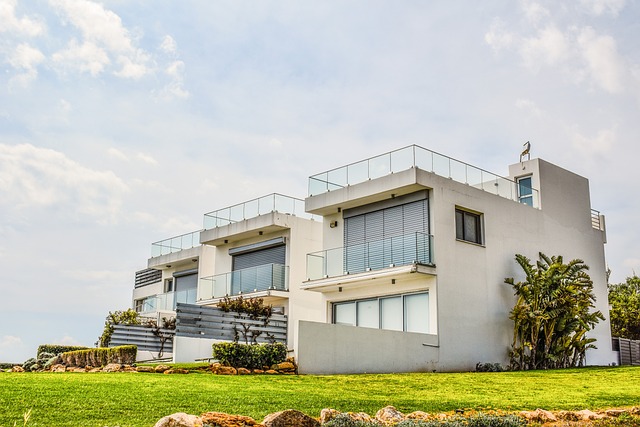Singapore's Executive Condominium (EC) market is a unique segment within its dynamic housing landscape, with prices influenced by a mix of government policies, market forces, and development characteristics. EC eligibility criteria are pivotal for potential buyers, who must be Singapore Citizens or Permanent Residents, not own more than one property, and commit to occupying the EC for at least 5 years post-purchase, as part of the Monthly Occupation Period (MOP). Over the past decade, ECs have seen variable pricing influenced by cooling measures like loan-to-value ratio adjustments and the Total Debt Servicing Ratio (TDSR), while maintaining their status as a cost-effective yet quality housing solution. Location, development quality, and Executive Condominium Eligibility (ECE) criteria significantly impact EC prices, with premium locations and high-end finishes commanding higher prices. The government's role in shaping the market is crucial through eligibility guidelines, subsidies, and grants for first-time homeowners, as well as through economic policies that affect investment decisions. For those looking to invest or purchase an EC, staying informed on policy changes and economic trends is essential to navigate the market effectively and make informed choices based on Executive Condominium Eligibility criteria.
Executive Condominium (EC) eligibility in Singapore opens doors for first-time homeowners to transition into public housing with a upgrade. This article delves into the price trends of ECs over the past decade, shedding light on the dynamic interplay between market conditions and government policies shaping these trends. We explore historical data, influential factors like location and development quality, and project future EC prices, all while considering the evolving eligibility criteria and their impact. Join us as we navigate the complex landscape of EC pricing in Singapore, providing valuable insights for potential homeowners.
- Understanding Executive Condominium (EC) Eligibility in Singapore
- Historical Price Trends of ECs in Singapore: A Decade-Long Perspective
- Factors Influencing Current EC Prices in Singapore
- Analyzing the Impact of Government Policies on EC Pricing
- The Role of Location and Development Quality in Determining EC Prices
- Future Projections for EC Price Trends in Light of Market Dynamics and Policy Changes
Understanding Executive Condominium (EC) Eligibility in Singapore

In Singapore, the landscape of housing options is diverse, with Executive Condominiums (ECs) presenting a unique blend of benefits for eligible homeowners. Executive Condominium Eligibility in Singapore is a critical aspect for potential buyers to understand before embarking on their journey to own an EC. As of the latest regulations, applicants must meet certain criteria. Firstly, they should be Singapore Citizens aged 21 and above, or they could be Singapore Permanent Residents who are married to or in a long-fettered relationship with a Singapore Citizen. Additionally, applicants are required to have not more than one other property owned either wholly or partly. This includes any mix of HDB flats, DBSS (Design, Build and Sell Scheme) flats, and executive condominiums. Prospective buyers must also intend to occupy the EC as their primary home for a minimum occupation period (MOP) of 5 years before they are eligible to sell the unit on the open market. This policy ensures that ECs remain accessible to first-time homeowners while maintaining stability in the public housing ecosystem. Understanding these eligibility criteria is paramount for individuals and families aspiring to purchase an Executive Condominium in Singapore, as it guides them through the application process and helps in making informed decisions regarding their housing options.
Historical Price Trends of ECs in Singapore: A Decade-Long Perspective

The historical price trends of Executive Condominiums (ECs) in Singapore over the past decade reflect a dynamic and resilient property market, influenced by both government policies and market demand. ECs, which cater to couples with at least one Singaporean citizen, offer an attractive housing option that bridges the gap between public and private housing. From 2010 to 2020, prices for these condominiums have seen fluctuations, responding to various economic climates and policy measures introduced by the Singapore government to maintain a stable and sustainable property market.
Initial years of the decade saw a robust demand for ECs, with prices rising steadily as they became increasingly popular among first-time homeowners who were eligible under the Executive Condominium Eligibility criteria. This trend was partly due to the affordability factor and the enhanced benefits of ECs, which include the option to apply for a 25-year lease or purchase the unit fully in the future. However, the market experienced cooling measures during this period, including tightened loan-to-value (LTV) ratios and Total Debt Servicing Ratio (TDSR) frameworks, which influenced price movements. Despite these measures, EC prices continued to grow, albeit at a more modest pace, highlighting their enduring appeal among Singaporeans looking for affordable yet quality housing options.
Factors Influencing Current EC Prices in Singapore

Executive Condominium (EC) prices in Singapore are influenced by a confluence of factors that reflect both market dynamics and government policies designed to balance housing supply and affordability for different segments of the population. The eligibility criteria for purchasing an EC, which cater to young couples and families who may eventually upgrade to private properties, play a significant role in demand and pricing. These criteria include age requirements, income ceilings, and the requirement that at least one applicant must be a Singapore citizen.
The current price trends of ECs are also affected by macroeconomic conditions such as interest rates, economic growth, and inflation, which can influence mortgage rates and the purchasing power of potential buyers. Additionally, the location and completion status of the ECs contribute to their desirability and perceived value, impacting prices accordingly. Newly launched EC projects in sought-after areas or with attractive features may command higher prices, while older or less centrally located units may experience a decline in pricing. The supply of EC units, both from new launches and the resale market, also affects prices, as does the overall sentiment towards property investment in Singapore. Developers’ pricing strategies are informed by these factors, aiming to offer competitive rates that align with both the market conditions and the Executive Condominium eligibility guidelines set forth by the government.
Analyzing the Impact of Government Policies on EC Pricing

In Singapore, the pricing of Executive Condominiums (ECs) is influenced by a myriad of factors, with government policies playing a pivotal role in shaping the market. The Singaporean government implements various policies aimed at balancing housing demand and ensuring that ECs remain accessible to eligible couples, particularly first-time homeowners. These policies include the definition of eligibility criteria for purchasing an EC, which has implications for pricing. For instance, individuals or families must meet the Monthly Household Income Ceiling set by the Housing & Development Board (HDB) to be eligible to purchase an EC. This threshold determines the income bracket that can afford an EC, thus affecting demand and pricing. Furthermore, government interventions such as the introduction of cooling measures or adjustments to loan-to-value ratios can impact the affordability and attractiveness of ECs, consequently influencing their market prices. Policymakers also consider broader economic indicators and housing market trends when making decisions that affect EC pricing. As a result, stakeholders closely monitor changes in government policies as these can lead to significant shifts in the EC price landscape, necessitating a dynamic approach to understanding Executive Condominium Eligibility and its correlation with market forces.
The Role of Location and Development Quality in Determining EC Prices

Executive Condominium (EC) prices in Singapore are influenced by a confluence of factors, with location and development quality playing pivotal roles. Prime locations, characterized by proximity to established transport networks, reputable schools, and lifestyle amenities, often command higher prices due to their desirability. These areas offer convenience and the potential for capital appreciation, making them sought after by both upgrading HDB families and investors.
The quality of development is another critical determinant of EC pricing. This encompasses the architectural design, interior specifications, brand reputation of the developer, and the overall living experience on offer. High-quality finishes, smart home features, and thoughtful layouts contribute to the allure of an EC, justifying a premium in its price tag. Executive Condominium Eligibility (ECE) criteria ensure that these properties are accessible to eligible individuals or families looking for a step up from public housing while maintaining affordability relative to private condominiums. Understanding these factors is essential for prospective buyers and investors as they navigate the property market in Singapore, with ECs offering a unique blend of affordability and quality living spaces.
Future Projections for EC Price Trends in Light of Market Dynamics and Policy Changes

As Singapore’s property market continues to evolve, the Executive Condominium (EC) segment has emerged as a dynamic component within the city-state’s housing landscape. The trends in EC prices are influenced by a confluence of factors, including market dynamics and policy changes that directly affect executive condominium eligibility criteria. Projections for future EC price trends must consider the ongoing impact of these factors. For instance, government policies aimed at moderating price growth through cooling measures could lead to fluctuations in demand, thereby influencing pricing. Additionally, the availability of subsidies and grants for eligible first-time homeowners can stimulate interest in ECs, potentially driving up prices as demand increases.
Looking ahead, developers and investors alike keep a keen eye on the Singaporean government’s housing policies. Any shifts in eligibility criteria for ECs, such as changes to the minimum occupation period or income ceilings, can significantly affect market sentiment and price trends. Moreover, economic indicators like interest rates, inflation, and employment figures play a pivotal role in shaping purchase decisions and investment strategies. As a result, understanding these interplaying elements is crucial for anticipating how EC prices might move in the near to medium term. Market watchers and potential buyers should remain informed of policy updates and economic signals to make well-considered decisions within the executive condominium eligibility framework.
In conclusion, the trajectory of Executive Condominium (EC) price trends in Singapore is shaped by a confluence of factors, from eligibility criteria to the impact of government policies and the influence of location and development quality. Historical data over the past decade underscores the volatility and growth potential within this segment of the housing market. Prospective buyers must consider these dynamics when evaluating EC eligibility and investment opportunities. Looking ahead, the interplay between market forces and policy adjustments will continue to shape the price trajectory of ECs in Singapore. Potential investors and homeowners are encouraged to stay informed about these trends to make well-informed decisions aligned with their long-term objectives.
